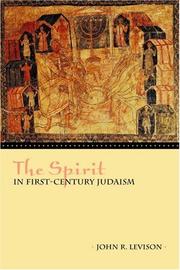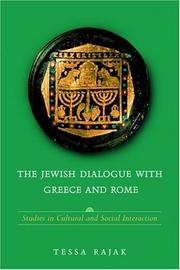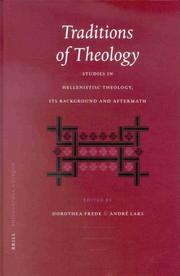| Listing 1 - 4 of 4 |
Sort by
|
Book
ISBN: 2874560030 2821829000 Year: 2002 Publisher: Presses universitaires de Liège
Abstract | Keywords | Export | Availability | Bookmark
 Loading...
Loading...Choose an application
- Reference Manager
- EndNote
- RefWorks (Direct export to RefWorks)
This study questions the traditional view of sacrifices in hero-cults during the Archaic to the early Hellenistic periods. The analysis of the epigraphical and literary evidence for sacrifices to heroes in these periods shows, contrary to the traditional notion, that the main ritual in hero-cults was a thysia at which the worshippers consumed the meat from the animal victim. A particular handling of the animal’s blood or a holocaust, rituals previously taken to be typical for heroes, can rarely be documented and must be considered as marginal features in hero-cults. The terms eschara, escharon, bothros, enagizein, enagisma, enagismos and enagisterion, believed to be characteristic for hero-cults, are seldom used in hero-contexts before the Roman period and occur mainly in the Byzantine lexicographers and in the scholia. Since the main kind of sacrifice in hero-cults was a thysia, a ritual intimately connected with the social structure of society, the heroes must have fulfilled the same role as the gods within the Greek religious system. The fact that the heroes were dead seems to have been of little significance for the sacrificial rituals and it is questionable whether the rituals of hero-cults are to be considered as originating in the cult of the dead.
Religion --- Philosophy & Religion --- European Religions - pre-Christian --- Hero-cults --- ancient Greek religion --- ritual --- religious beliefs --- sacrifice

ISBN: 9789004494107 9780391041318 Year: 2002 Publisher: Leiden; Boston : BRILL
Abstract | Keywords | Export | Availability | Bookmark
 Loading...
Loading...Choose an application
- Reference Manager
- EndNote
- RefWorks (Direct export to RefWorks)
The Spirit in First Century Judaism mirrors the growing recognition that the role of the Spirit in Judaism and early Christianity warrants further scholarly inquiry and moreover lays a cornerstone in the foundation of pneumatological studies by scouring the writings of the likes of Plato and Plutarch, Daniel and the Dead Sea Scrolls, as well as those of Philo of Alexandria and Flavius Josephus. Levison contextualizes the material both historically and literarily, taking seriously the influence of popular Greco-Roman thinking as well as Jewish exegetical traditions. Convincingly argued, cogently presented, and thoroughly documented, this volume, in the words of the Journal of Jewish Studies, "has profound ramifications for both Jewish and New Testament Studies." This publication has also been published in hardback, please click here for details.
Holy Spirit (Judaism) --- Judaism --- History of doctrines --- History --- Relations --- Greek religion

ISBN: 0391041339 Year: 2002 Publisher: Boston (Mass.) : Brill,
Abstract | Keywords | Export | Availability | Bookmark
 Loading...
Loading...Choose an application
- Reference Manager
- EndNote
- RefWorks (Direct export to RefWorks)
Hellenism. --- Jewish diaspora. --- Jews --- Jews --- Jews --- Jews --- Josephus, Flavius. --- Judaism --- Judaism --- Civilization --- Greek influences. --- Historiography. --- History --- History --- Relations --- Greek religion. --- Relations --- Greek.

ISSN: 00791687 ISBN: 9004122648 9786610464890 1417551909 1280464895 9047401069 9781417551903 9789004122642 9789047401063 Year: 2002 Volume: 89 Publisher: Leiden Boston Brill
Abstract | Keywords | Export | Availability | Bookmark
 Loading...
Loading...Choose an application
- Reference Manager
- EndNote
- RefWorks (Direct export to RefWorks)
The nine articles in this volume were originally presented at the VIII. Symposium Hellenisticum in Lille in August 1998. The authors discuss a set of theological questions that were central to the doctrines of the dominant schools in the Hellenistic age, such as the existence of the gods, their nature, and their concern for humankind. While the philosophers of the Classical age had kept their distance from conventional religion, the Stoics and Epicureans saw the need to come to terms with the religious tradition both in a critical and in a supportive sense. Especially the challenge by the Sceptics forced the followers of the dogmatic schools (Stoics, Epicureans) to clarify the basis of their theological tenets. Many of the texts that are accessible to us only in a fragmentary state were still highly influential in the early Christian era, so that the reconstruction of the theological views of the Hellenistic philosophers form an important part not only of the history of philosophy, but also of Christian theology and the history of religion in general. One distinctive feature of the volume is that it mirrors the changes of perspective that took place over the many centuries in this area, thus presenting the Hellenistic contribution within the larger framework of Greek philosophical theology.
Philosophy, Ancient --- God --- Philosophical theology --- God (Greek religion) --- History of doctrines --- History --- Theology --- Christian theology --- Theology, Christian --- Christianity --- Religion --- Ancient philosophy --- Greek philosophy --- Philosophy, Greek --- Philosophy, Roman --- Roman philosophy --- Dieu (Religion grecque) --- Théologie --- Philosophie ancienne --- Congresses --- Congrès --- Theology, Philosophical --- Philosophy and religion --- Theology, Doctrinal --- Metaphysics --- Misotheism --- Monotheism --- Theism --- Philosophy [Ancient ] --- Philosophy, Ancient - Congresses. --- God - History of doctrines - Congresses. --- Philosophical theology - History - Congresses. --- God (Greek religion) - Congresses.
| Listing 1 - 4 of 4 |
Sort by
|

 Search
Search Feedback
Feedback About UniCat
About UniCat  Help
Help News
News